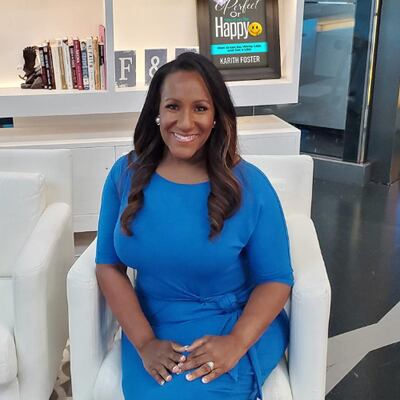Thanksgiving dinner this year, like much of 2020, could be little harder than normal.
It’s been 10 months since the coronavirus came to America’s shores. Since that time, around a quarter-million families will have lost a loved one to the coronavirus, and millions more will remain quarantined over the holiday weekend. On top of that, an exceptionally divisive political season may have left you worried about how your loved ones will share a cornucopia of viewpoints around the dinner table.
If you’re anxious about how to chew the turkey and the fat this year, humorist, author and diversity engagement specialist Karith Foster has some advice on how to make it a truly Happy Thanksgiving.
Like the table, set the stage
The first step in having a happy Thanksgiving meal this year, amid pandemic and political polarization, is to “set the stage” and “have an intention” for the day, Foster explained.
“Have your intention to be to have as little conflict as possible, to enjoy the time you have with your family, because the reality — and we’ve been shown this by COVID — nothing’s guaranteed.”
Foster, who will fill the roles of daughter, wife and mother of two little girls this year at her north Dallas Thanksgiving table, said “it’s very easy to get caught up in being right and feeling superior.”
But, “What do you win?” she added. “You win a better relationship with your family? I don’t think so.”
Foster, who has her own TEDx Talk titled “The Art of Defying Stereotypes,” explained, “I’m not saying don’t be passionate about your politics and your stance, but for everything there’s a time and a place. And with setting the intention of having a good time with your family, that may not be part of the curriculum.”
Setting the intention to have a good day, Foster said, is a “mature and thoughtful approach” for “creating a space for communion.”
“We talk about the reason for the season,” she added, “that’s what this is about.”
At the table, remember to CARE
Let’s say the mashed potatoes came out pretty well and the table talk has been just as easy to stomach. How do we keep the conversation going?
Foster explained that the people sitting with you probably have more in common than they don’t. Everyone wants to be loved and heard, she said.
“When you can sit and hear someone else out — and hear where they’re coming from and reserve judgment — you’ll be amazed at where the conversation can go,” she said. “And usually once that person receives that gift from you ... they can reciprocate. Hopefully.”
And in this conversation, Foster said she wants people to CARE — which stands for conscious empathy, active listening, responsible reactions and environmental awareness.
But finding love and compassion for people we care about, those we are communing with, can be difficult. That irony, Foster says, is because our perspective can be too close.
“It’s easier to be objective with a stranger,” she said, “versus someone we love. But that doesn’t mean you still can’t have the same compassion for them that you would a stranger.”

To see past this proximity induced blindspot, Foster recommends “repositioning your interpretation of that person.”
She used the example of being a parent to explain further.
“They’re entitled to have their own beliefs,” she said of her kids, “and one day I’m going to have to let go.”
“I’ll ingrain into them — the best that I can — the values that I hope that they absorb, but ultimately they’re their own people,” Foster explained.
“And that’s what we have to remember with our relatives and the people that are really, really close to us. They are there own person, they’re entitled to their beliefs — we may not necessarily like it or agree with it — but that doesn’t have to change our love for them,” she said.
What if the table top is a laptop?
If your Thanksgiving is socially distanced this year, through actual miles or maybe just a quarantined computer screen, there is still a chance to connect with the people you care about.
“Don’t for one instance think that because we’re not in-person, we can’t still be effective communicators,” the professional communicator said.
The same energy and emotions we experience with people can translate through Zoom, Skype or Facetime screen, Foster said. “If it didn’t, we wouldn’t be moved by movies.”
She recalled the “A” from the CARE acronym — active listening. Remember not to speak over people and to give everyone a chance to have their own say, Foster added.
If things get bad, stand-up at the table
Regardless of the best intention, if the mood and conversation becomes derailed before dessert, Foster has a life preserver that could save Thanksgiving dinner.
“Humor! Humor! Humor,” the stand-up comedian recommends. “Tell a joke, tell a funny story, get everybody laughing. Laughter is not just the best medicine, it is healing, it is cathartic.”
Laughter and humor, she said, “is our back pocket life preserver.” But, the humorist adds, it “should be in the forefront.”
If you’re not as funny as Foster, who’s performed in places like New York’s famous Apollo Theater, NBC’s “Last Comic Standing” and “The Oprah Winfrey Show,” her 6- and 8-year-old daughters have a favorite joke that’s sure to revive any turkey.
What’s Yoda’s last name, the young Jedi mused?
Lay-He-Hoo!


